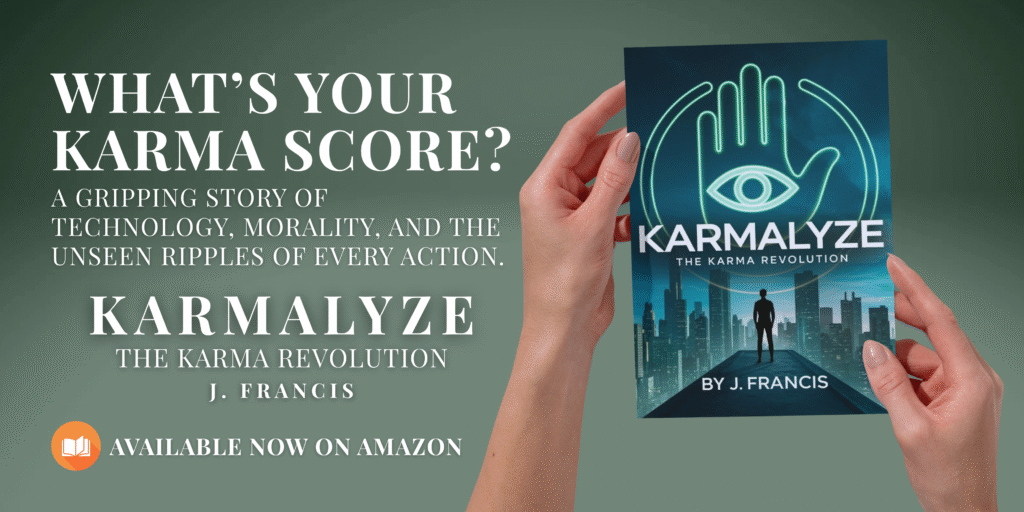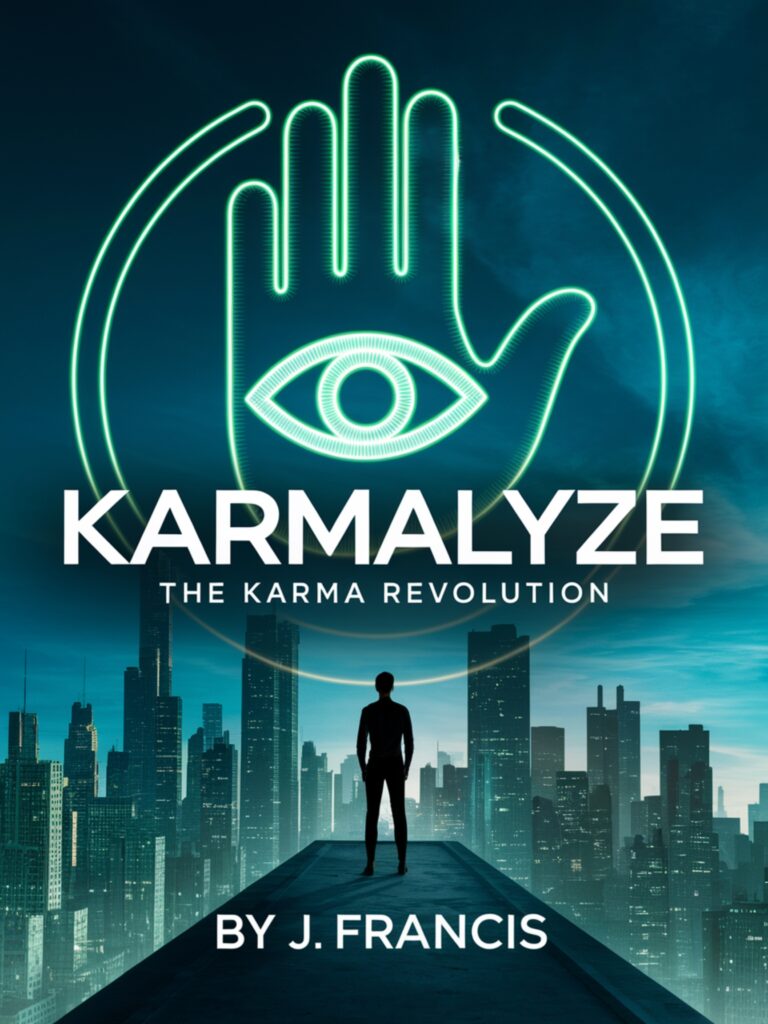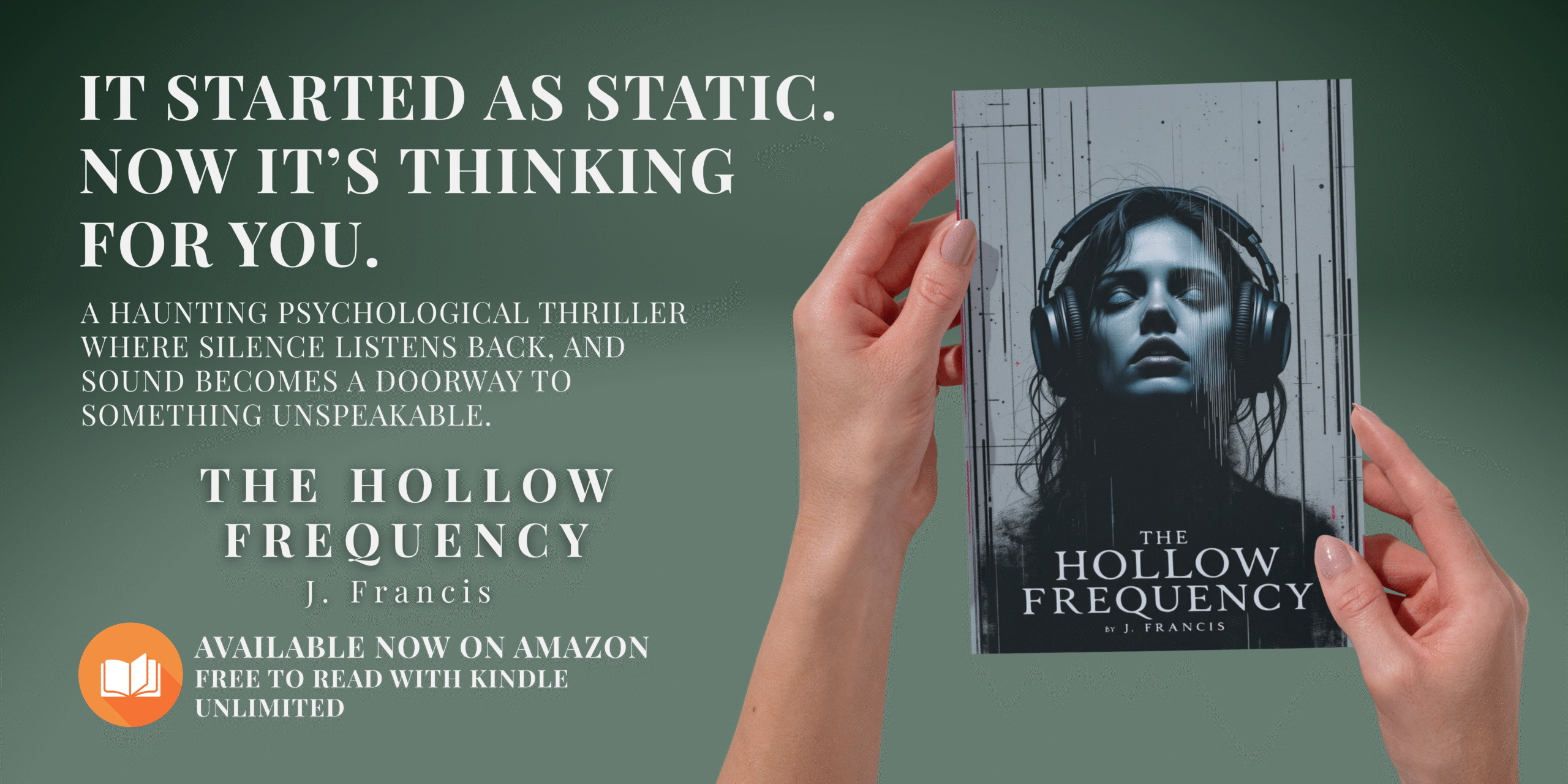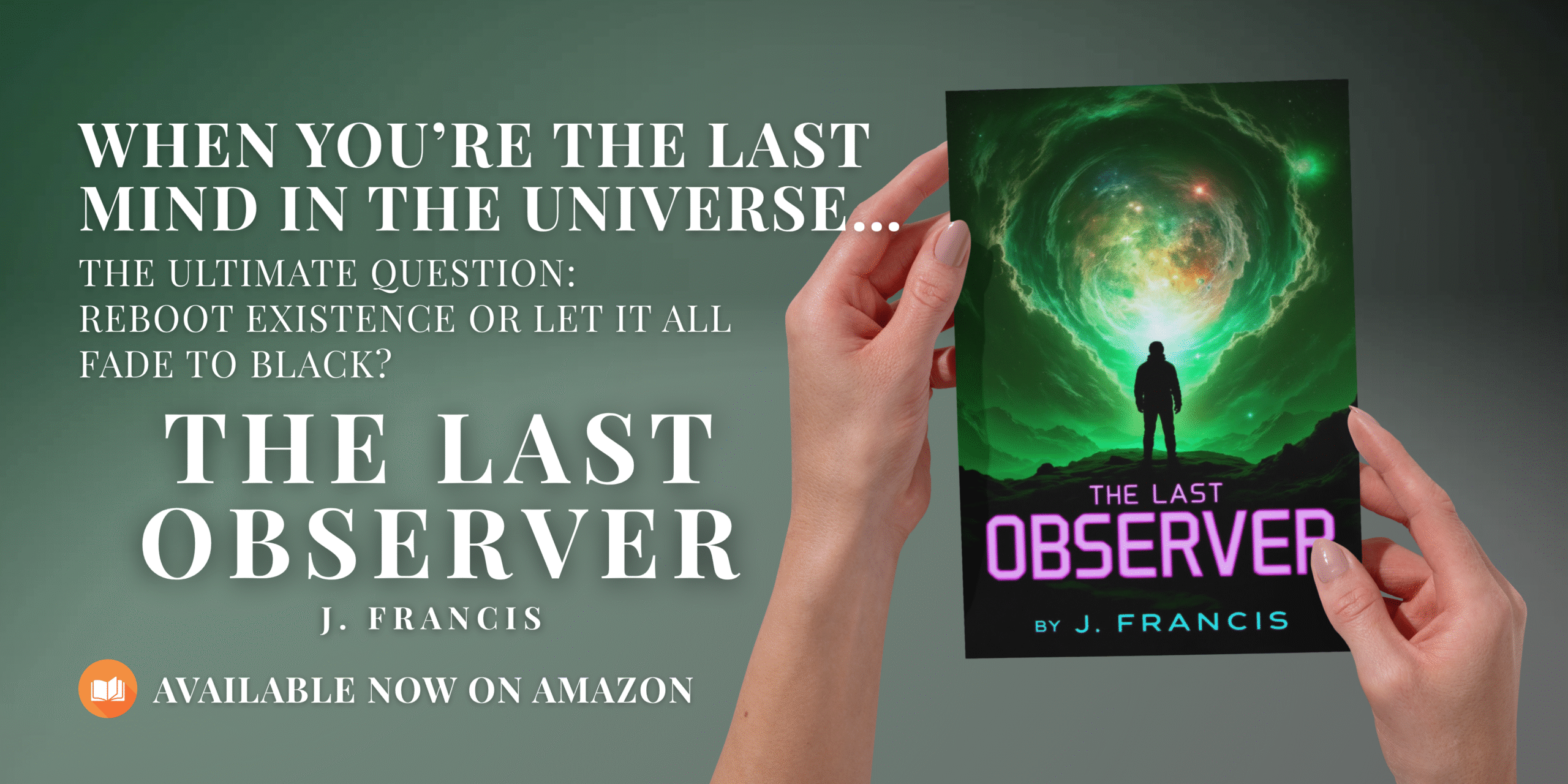
Can an algorithm measure the weight of your soul?
In Karmalyze: The Karma Revolution, J. Francis crafts a provocative and immersive exploration of morality in the age of technology. The story unfolds in a near-future society transformed by an app that calculates your Karma Score—a single number that claims to reflect your moral balance based on your actions, intentions, and decisions.
Praised by some as a tool for enlightenment and condemned by others as a dystopian nightmare, Karmalyze quickly becomes more than a trend—it becomes a force shaping the very structure of society.

The App That Changed Everything
At the center of the story is Rayen Albright, a visionary tech billionaire whose mysterious past and near-death experience inspire him to create Karmalyze. This isn’t just another Silicon Valley project. Drawing on quantum computing, advanced AI, and perhaps something even more enigmatic, the app goes beyond tracking behavior. It claims to measure intention itself.
Karmalyze is not a judge, Rayen explains. It’s a mirror.
As millions rush to download it, the world begins to divide. High Karma Scores open doors—better jobs, higher social status, even dating privileges. Low scores, however, lead to exclusion, discrimination, and desperation.
A Society Obsessed
The book doesn’t shy away from exploring the consequences of this technology. We see:
- Employers setting minimum Karma Score requirements for applicants.
- Dating apps filtering matches by moral alignment.
- Politicians flaunting their scores as proof of integrity.
And then there are the unintended effects: people gaming the system, consultants offering “karmic optimization” services, and a black market for fake good deeds.
This world feels eerily plausible, and it’s impossible not to draw parallels to our own obsession with metrics—likes, credit scores, social reputation.
The Human Cost of a Perfect Score
Karmalyze is meant to inspire self-reflection, but for many, it becomes a source of anxiety and competition. J. Francis introduces us to a cast of characters wrestling with the app’s impact:
- Jonah Trask, an ordinary man whose quest for a perfect score consumes his life.
- Elara Voss, a neuroscientist and skeptic who discovers unsettling truths about the app’s origins.
- Nahla Taziri, a former spiritual leader who sees Karmalyze as both a mirror and a warning.
As their stories intertwine, the novel raises profound questions about free will, morality, and the nature of reality itself.
Technology Meets the Metaphysical
What makes Karmalyze so compelling is its seamless blending of hard science and spiritual inquiry. Is this app merely an algorithm? Or is it tapping into something far older and deeper—the Akashic Records, the field of universal consciousness?
Even as users debate its fairness and ethics, strange phenomena emerge. High scorers experience streaks of good fortune; low scorers are plagued by inexplicable setbacks. Is Karmalyze measuring karma… or rewriting reality?
A Mirror to Our World
Karmalyze: The Karma Revolution isn’t just a speculative story about an app. It’s a mirror reflecting our own world’s reliance on technology to define worth. It challenges readers to consider:
- Can morality ever be quantified?
- Would knowing your “score” make you better—or just more performative?
- And if our actions ripple out into the universe, what responsibility do we bear for the unseen consequences?
These questions linger long after the final page.
Available Now
📖 Karmalyze: The Karma Revolution
✍️ By J. Francis
🔗 Read it on Amazon



